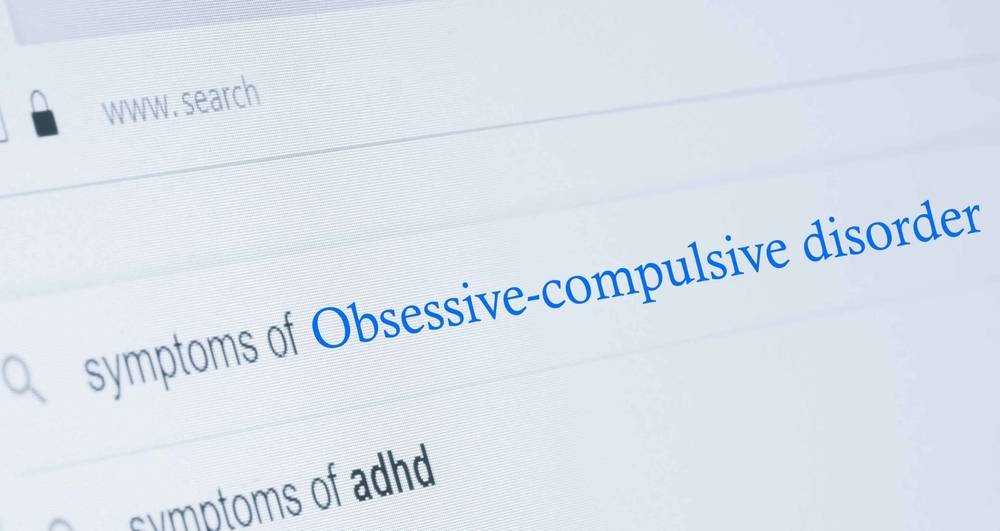Obsessive-Compulsive Disorder (OCD) is often misunderstood and oversimplified as a mere obsession with cleanliness.
However, OCD is a complex mental health condition that goes far beyond this narrow stereotype. This article aims to shed light on the true nature of OCD, debunk common myths, and provide insights into its various manifestations.
What is OCD?
OCD is characterised by persistent, intrusive thoughts (obsessions) and repetitive behaviours or mental acts (compulsions) performed to alleviate the distress caused by these obsessions. While cleanliness and orderliness are common themes, they are not the only manifestations of OCD. Other types include checking, hoarding, intrusive thoughts, and symmetry obsessions.
For instance, someone with checking compulsions may repeatedly check if doors are locked or appliances are turned off due to fears of harm. Hoarding involves the excessive accumulation of items and difficulty discarding them, while intrusive thoughts can be disturbing and unwanted ideas that often revolve around harm or taboo subjects. Symmetry obsessions compel individuals to arrange objects until they feel “just right.”
The Prevalence and Impact of OCD
According to research, OCD affects approximately 2-3% of the global population, making it one of the more common mental health disorders. One study indicates that the lifetime prevalence of OCD in Singapore is 3.6%, and the 12-month prevalence is 2.9%. This means that 3.6% of the population will experience OCD at some point in their lives, while 2.9% had OCD in the past year.
Additionally, individuals with OCD have significantly higher odds of also having other mental health disorders such as major depressive disorder, bipolar disorder, generalised anxiety disorder, and alcohol abuse. This highlights the need for comprehensive mental health support for those with OCD.
Debunking Common Myths
One of the most pervasive myths about OCD is that it solely involves a preoccupation with cleanliness and orderliness. While some individuals do experience these types of obsessions, the condition can manifest in many other ways. For example, some people may have intrusive thoughts about harming others or themselves, even though they have no desire to act on these thoughts. Others might have compulsions that involve repeating certain actions a specific number of times to prevent a feared event.
One comprehensive study found that only 26.5% of sufferers reported obsessions related to contamination and compulsions related to cleaning or washing. Instead, a large proportion of individuals reported other obsessions such as fear of harm (42.5%) and compulsions like checking (40.2%) and repeating (37.1%). This data highlights the diverse nature of OCD, debunking the myth that it is merely about cleanliness.
The National Institute of Mental Health (NIMH) explains that these obsessions and compulsions can significantly impair daily functioning and lead to distress in various aspects of life, including work, school, and personal relationships.
The Importance of Early Diagnosis and Treatment
Early diagnosis and treatment of OCD are crucial for improving outcomes. Cognitive-behavioural therapy (CBT), particularly exposure and response prevention (ERP), is considered the gold standard treatment for OCD.
According to another study, about 60-70% of individuals with OCD benefit significantly from CBT. Medications, such as selective serotonin reuptake inhibitors (SSRIs), are also effective for many patients.
Early intervention can prevent the condition from worsening and improve the quality of life for individuals with OCD. A meta-analysis in the Journal of Clinical Psychiatry highlighted that early treatment is associated with better long-term outcomes and reduced severity of symptoms.
Personal and Social Impacts
Living with OCD can be profoundly challenging, affecting both personal and social aspects of life. Individuals often face significant distress and impairment in daily functioning. Those with OCD are at a higher risk for comorbid conditions such as depression, anxiety disorders, and substance abuse. These co-occurring conditions can exacerbate the symptoms of OCD and make treatment more complex.
Socially, OCD can lead to isolation. People with OCD might avoid social interactions due to their symptoms, leading to feelings of loneliness and further mental health issues. The stigma associated with mental health disorders prevents individuals from seeking help or discussing their struggles openly, thereby worsening their condition.
Furthermore, individuals with OCD report lower quality of life and social functioning compared to those without the disorder. This emphasises the need for societal awareness and support systems to help those affected by OCD.
Supporting Individuals with OCD
Support from family, friends, and the community is essential for individuals with OCD. Families can educate themselves through reputable sources like the International OCD Foundation, which provides resources and information on various OCD symptoms and treatments.
Creating a supportive home environment is crucial. Family members can encourage loved ones to adhere to treatment plans and attend therapy sessions. They should also learn to avoid enabling compulsions, which can inadvertently reinforce the disorder. Open communication within the family helps in discussing triggers and coping mechanisms.
Friends and colleagues play a role by being patient and non-judgmental. They can offer practical support, such as accompanying individuals to medical appointments or providing a listening ear. Support groups, both online and in-person, provide a platform for individuals with OCD to share experiences and strategies. These groups offer a sense of community and reduce feelings of isolation.
Creating an Informed and Supportive Society
Creating a supportive society for individuals with OCD involves widespread education and awareness campaigns. Schools, workplaces, and community organisations can play a pivotal role by incorporating mental health education into their programs. This includes training teachers, employers, and community leaders to recognise the symptoms and respond supportively.
Understanding OCD beyond the misconception of just cleanliness is crucial for providing appropriate support and treatment. Recognizing the diverse manifestations of OCD, the importance of early intervention, and the need for a strong support system can significantly improve the lives of those affected by this condition. Through education, empathy, and proactive support, we can create a more inclusive and supportive environment for individuals with OCD.
References
- Abramowitz, J. S., Taylor, S., & McKay, D. (2009, August 1). Obsessive-compulsive disorder. Lancet. https://doi.org/10.1016/s0140-6736(09)60240-3
- Obsessive-Compulsive Disorder in Singapore: Prevalence, Comorbidity, Quality of Life and Social Support. (2020, January 1). PubMed. https://pubmed.ncbi.nlm.nih.gov/32200393/#:~:text=Results%3A%20Lifetime%20and%2012%2Dmonth,abuse%20(OR%2C%202.7).
- Ruscio, A. M., Stein, D. J., Chiu, W. T., & Kessler, R. C. (2008, August 26). The epidemiology of obsessive-compulsive disorder in the National Comorbidity Survey Replication. Molecular Psychiatry, 15(1), 53–63. https://doi.org/10.1038/mp.2008.94
- Obsessive-Compulsive Disorder. (n.d.). National Institute of Mental Health (NIMH). https://www.nimh.nih.gov/health/topics/obsessive-compulsive-disorder-ocd
- Geller, D. A., & March, J. (2012, January 1). Practice Parameter for the Assessment and Treatment of Children and Adolescents With Obsessive-Compulsive Disorder. Journal of the American Academy of Child and Adolescent Psychiatry. https://doi.org/10.1016/j.jaac.2011.09.019
Have a pressing question for a doctor? Medical Channel Asia has launched a community forum page where you can get questions answered by a medical specialist. Visit the community forum here.














